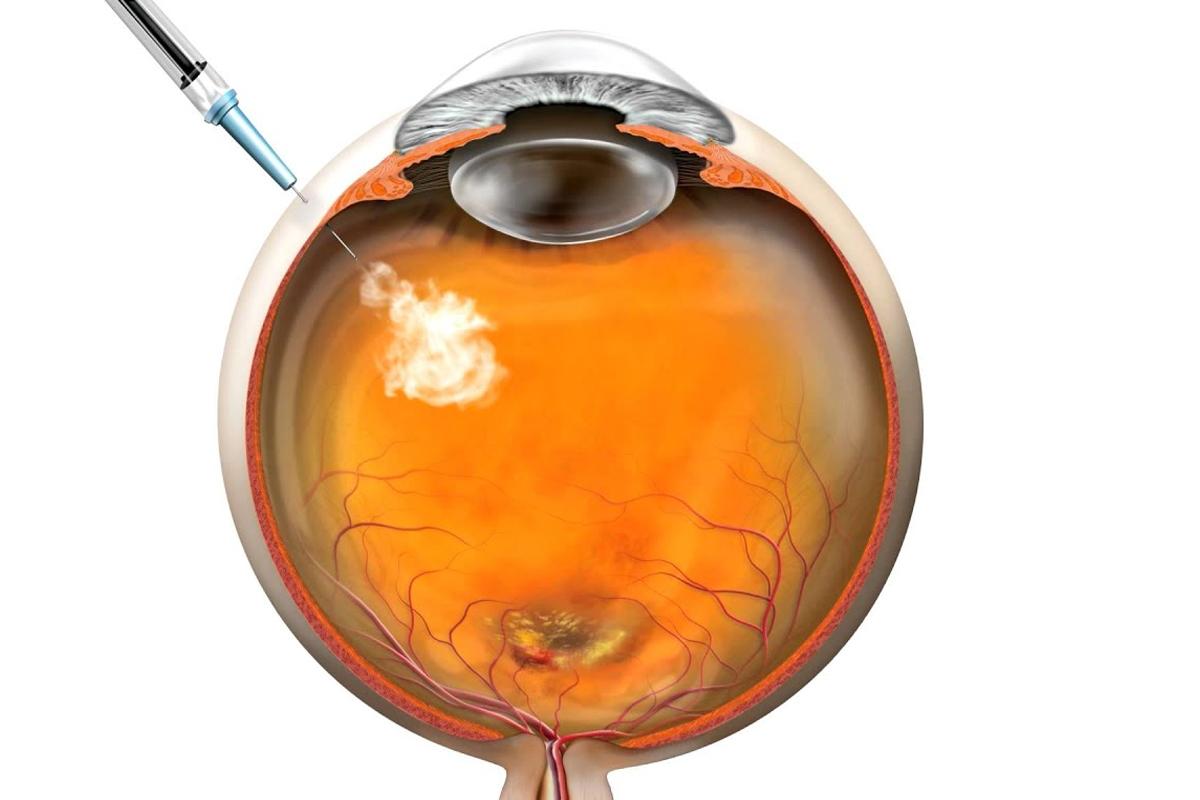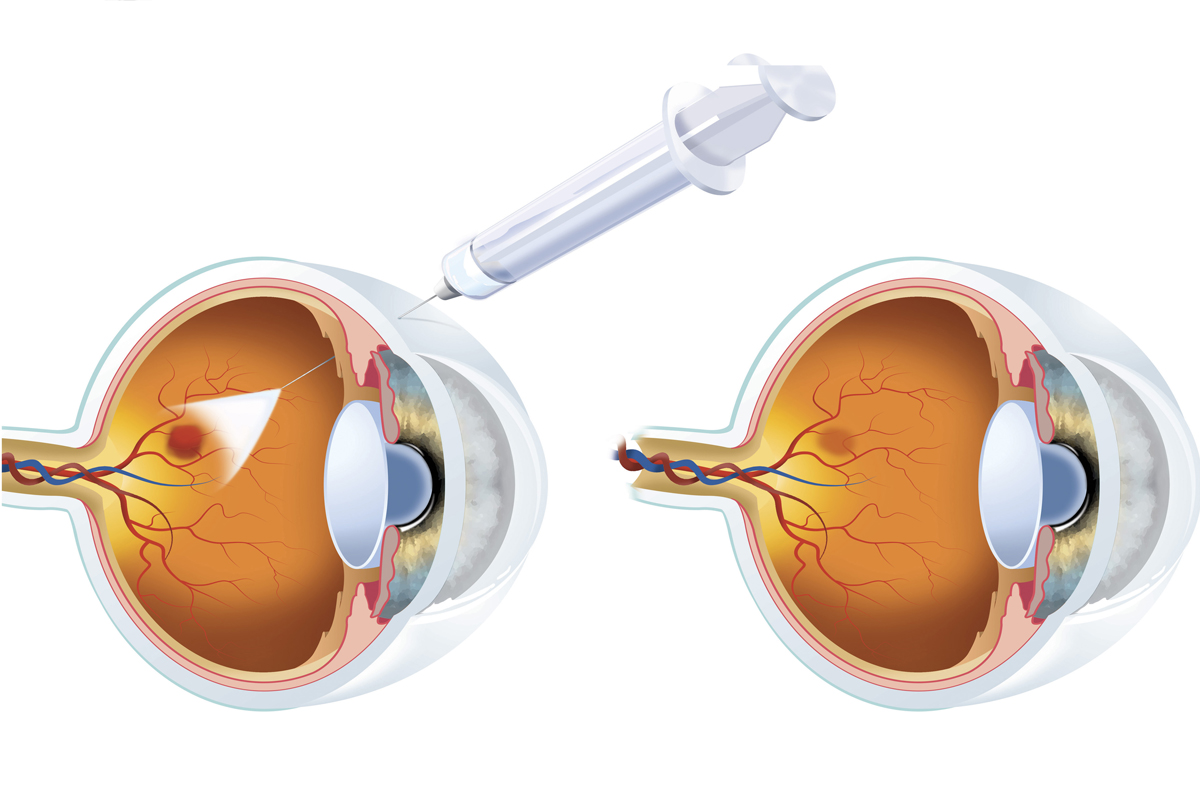Injections For Diabetic Retinopathy

If you have diabetic macular edema (DME) or an advanced case of diabetic retinopathy, your doctor may use injections as part of your treatment plan. You may need other treatments, like laser treatments or surgery, in addition to injections.
Learn more about diabetic retinopathy and DME
When you get injections in your eye, your eye doctor will:
• Put numbing medicine on your eye to make you more comfortable during the injection
• Clean your eye to help prevent infections
• Put the medicine in your eye with a very small needle
• After the treatment, you may need to use antibiotic eye drops to keep your eyes from getting an infection. The treatment doesn't change your vision right away. Most people can go back to their normal activities right after the treatment.

